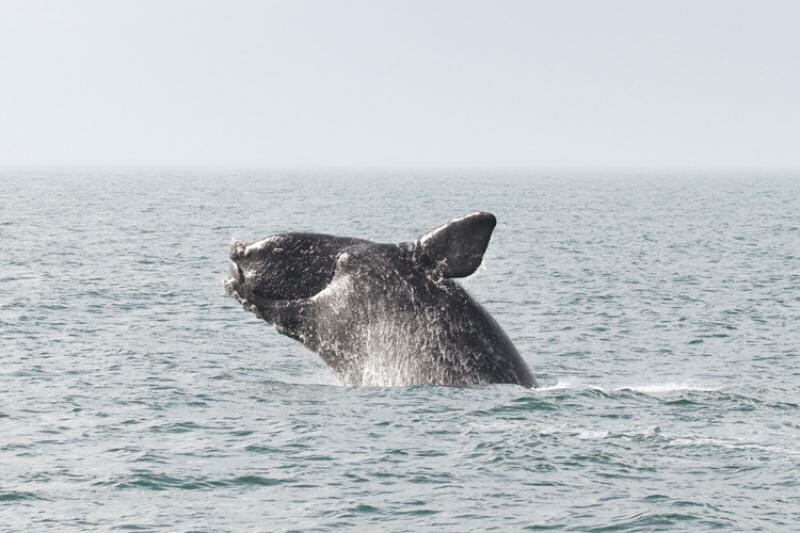Since Dec. 1, there have been 18 reports of dead whales washing ashore along the Atlantic Coast, according to the Marine Mammal Stranding Network.
With each dead whale washing ashore, the blood pressure of offshore wind critics has risen. They believe the survey and construction work associated with building new offshore wind farms in the New England and New York regions may have contributed to the whale deaths.
Government officials say there is no relationship between offshore wind and whale deaths. The National Oceanic and Atmospheric Administration website maintains a section where it reports on the number of whales washing ashore since "unusual mortality events" started being tracked in 2016.
Since 2016, a total of 184 humpback whales have washed ashore. A peak of 34 whale deaths was recorded in 2017. Last year, there were 19 whale deaths. But so far this year, there have been 10 deaths recorded. Five East Coast states – Massachusetts, New York, New Jersey, Virginia, and North Carolina - account for 81% of all whale deaths. Four are sites of offshore wind work.
In January, NOAA and the Bureau of Ocean Energy Management said there was no evidence to support speculation that noise resulting from wind development-related site characterization surveys could potentially cause mortality of whales. And, they said, there were no specific links between recent large whale mortalities and current ongoing surveys. Recently, the Marine Mammal Commission became the third federal agency to reject the linkage between offshore wind development and whale deaths.
NOAA's website notes that “partial or full necropsy examinations were conducted on approximately half of the whales. Of the whales examined, about 40% had evidence of human interaction, either ship strike or entanglement.”
I found it interesting that in the "frequently asked questions" about U.S. offshore wind development being linked to whale deaths, NOAA said:
“At NOAA Fisheries, we work with our partners to analyze and understand the causes of death when we are able, following the science and data. At this point, there is no evidence to support speculation that noise resulting from wind development-related site characterization surveys could potentially cause mortality of whales, and no specific links between recent large whale mortalities and currently ongoing surveys.
“We will continue to gather data to help us determine the cause of death for these mortality events. We will also continue to explore how sound, vessel, and other human activities in the marine environment impact whales and other marine mammals.”
NOAA is telling website visitors that it has no explanation for 60% of whale deaths tracked. NOAA said it will continue to research possible linkages, a statement echoed elsewhere on its website. One possible explanation, which appears not to have been considered, is that underwater noise has confused whales causing them to move farther into shipping lanes where they are hit by vessels. Sound would not cause a whale’s death, but it can be a contributing factor. We know from other studies that marine mammals can be disturbed by pile driving noise up to 12.5 miles away.
I do not know the cause of the sharp increase in whale deaths, and I am not claiming offshore wind development activity has contributed. However, for government officials to dismiss any linkage when they cannot explain 60% of the known deaths while admitting they need more research into the sound issue is disheartening.





